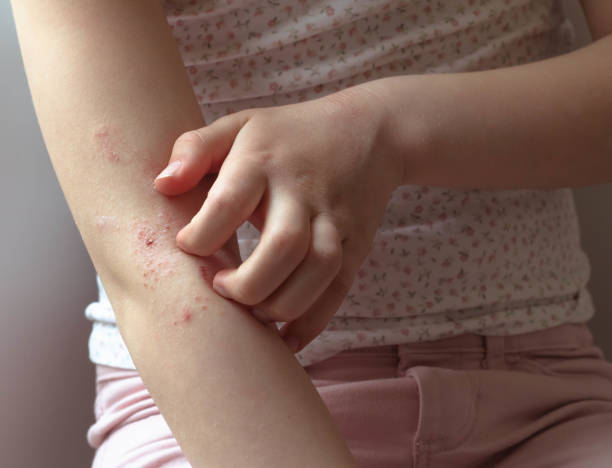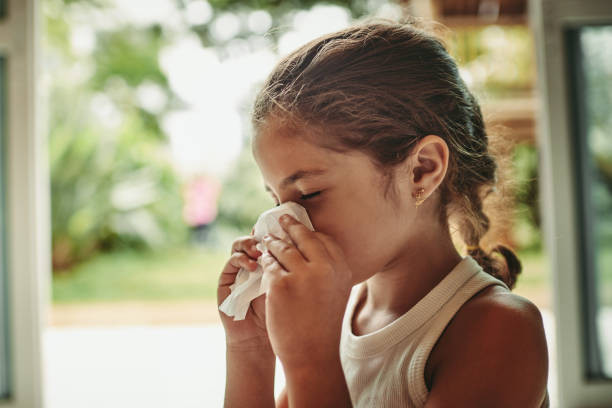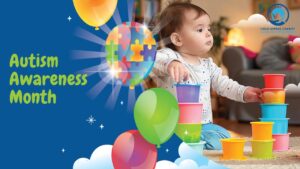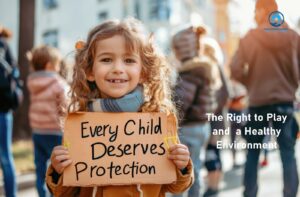Understanding Allergies in Children
Allergies in children is a common health issue that many face during their developmental stages. Allergies can cause various symptoms and negative effects on children’s health. It is an abnormal immune response of the body to specific substances.
Various factors such as food, environmental elements, insects, medications, and more can expose a child to allergens. When an allergen comes into contact with a child, their immune system initiates a reaction that manifests in various symptoms throughout the body.
you can also check: Respiratory Diseases in Children
Causes of Allergies in Children Several factors contribute to the development of allergies in children.
Genetic Factors: Genetic factors play an important role in determining the likelihood of developing allergies in children. If one or both parents have allergies, there is a higher chance of passing them on to their children. However, having a family history of allergies does not guarantee that the child will also experience them, but it increases the likelihood.
Exposure to Environmental Triggers: Exposure to environmental triggers is another significant factor in the development of allergies in children. Children may be exposed to a variety of potential allergens, such as house dust, pollen, respiratory infections, and more. Polluted and unhealthy environments increase the likelihood of allergies in children.
Dietary Factors: Dietary factors play a major role in the development of allergies in children. Some foods may act as allergens for certain children, such as eggs, milk, wheat, peanuts, and seafood. There are also food allergies that encompass a broader range of foods, and their severity may vary from one child to another.
Common Symptoms of Allergies in Children
Allergies in children can manifest with various symptoms that can vary in severity from one child to another. Here are some common symptoms of allergies in children:
Skin Rash: Children with allergies may experience a skin rash that causes itching and redness, with varying severity from one child to another.
Itching and Redness: Allergic children may experience severe itching in the skin, eyes, nose, or mouth, accompanied by redness in the affected area.
Nasal Congestion and Runny Nose: Children may suffer from nasal congestion and persistent runny nose, making it difficult for them to breathe, especially through the nose.
Sneezing and Coughing: Parents may notice that their child experiences frequent bouts of sneezing and coughing, which may increase particularly when exposed to potential allergens.
Chills and Fever: In severe cases of allergies, a child may experience chills and fever. These symptoms may indicate a severe immune reaction that requires immediate medical attention.
Digestive Disorders: Allergic children may experience digestive problems such as nausea, vomiting, and diarrhea.
Caring for Children with Allergies
When a child has allergies, necessary care, and attention become crucial in managing the symptoms and improving their quality of life. Here are some tips and guidelines for caring for children with allergies:
Identify Allergy Triggers:
Collaborate with a healthcare provider to identify the substances or factors that cause allergies in your child. This may involve allergy testing or reviewing personal and family medical history. Once you know the triggers, you can take steps to avoid them and reduce your child’s exposure.
Maintain a Clean and Healthy Environment:
Keep your home and the areas where your child spends time cleaning regularly. Pay attention to cleaning furniture, floors, curtains, and upholstery to minimize the accumulation of dust and potential allergens. Ensure proper ventilation and avoid using strong cleaning agents or chemical fragrances that may trigger allergies.
Avoid Trigger Foods:
It may be necessary to modify your child’s diet and avoid foods that cause allergies. Make sure to read product labels carefully and avoid ingredients that may contain allergenic substances.
Consult a Doctor and Use Appropriate Medications:
In case of severe allergies or persistent symptoms, it is important to consult a doctor. The doctor can provide guidance on appropriate medications to manage your child’s allergies. This may include antihistamines to relieve itching and nasal congestion, nasal sprays to reduce inflammation, or epinephrine auto-injectors for severe allergic reactions.
Create an Allergy Action Plan:
Work with your child’s healthcare provider to create an allergy action plan. This plan should outline steps to be taken in case of an allergic reaction, including when and how to administer medications, emergency contact information, and any specific instructions for your child’s allergies.
Inform School or Caregivers:
If your child attends school or daycare, inform the staff about your child’s allergies and provide them with necessary medications and instructions. Ensure that they are aware of potential triggers and precautions to be taken to prevent exposure.
Remember, each child’s allergies are unique, and it is important to work closely with healthcare professionals to develop an individualized care plan for your child. With proper management, support, and education, children with allergies can lead healthy and fulfilling lives.







